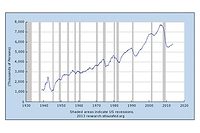Editor'sMemo -- July 2002
For over a year, I have squirreled away a keynote address that Joe McGonnell, group vice president, Electronic and Engineering Materials, National Starch and Chemical Co., Bridgewater, N.J., presented at the Pan-Pacific Microelectronics Symposium in January 2001. This month, with the introduction of ASI's Materials Handbook, McGonnell's speech seems as relevant as it did when he presented it.
It is significant that the conference planning committee asked a materials supplier to give the keynote. It underscores the importance of the development of die-attach adhesives with exceptionally low levels of ionic impurities and low moisture take-up.
McGonnell advised his global audience that closer collaboration between microelectronics makers and materials suppliers is essential to keep pace with accelerating technology advances. The same advice holds true for all our industries.
McGonnell explained that innovative materials have been a fundamental but often silent element in many historical technological advances, such as the telephone and the light bulb. In the modern world, "materials science is, in many ways, the most neglected part of the collective microelectronics partnership," said McGonnell.
McGonnell urged manufacturers to forge better and more long-term partnership agreements with materials suppliers because new materials will be at the heart of future advances. Such relationships "not only help create new solutions but also help reduce costs and prevent supply shortages," he said.
Why partner with materials suppliers? McGonnell gave three good reasons:
o Because they specialize in characterizing materials;
o Because they are in the business of rearranging molecules; and
o Because they have analytical laboratories that do nothing but materials science.
"Materials science is really several sub-disciplines, McGonnell said, "and every one of them has its own little global community that speaks in slightly different languages and approaches problems in slightly different ways. For instance, the polymer scientist who manipulates molecular structures relies on thermal analysis specialists, rheologists, surface scientists and, of course, a variety of engineers to scale up and make new materials practical for manufacturing."
According to McGonnell, the resources and experience of a good materials supplier also translate into the most valuable commodity of all . . . time. If time to market is important to you, then you need the speed that only specialists can provide.
Editorial Advisory Board Update
Jeff Timm, who has been on our board almost since its inception, is resigning this month because Johnson Polymer has reassigned him to director of market development and sales for Plastics Additives. He will be missed. I could always depend on Jeff to provide interesting commentary about our industry. He has been a valued colleague since we first met at an ASC meeting in the early '90s. Best wishes, Jeff.We have asked Dr. Dave Dunn, senior associate, bms North America, to join the board. Dave has been doing a stellar job at writing our Q&A column. He recently represented ASI magazine by speaking at the High Tech Adhesives 2002 Conference. Dave also provided great assistance with this month's Materials Handbook.
Looking for a reprint of this article?
From high-res PDFs to custom plaques, order your copy today!





